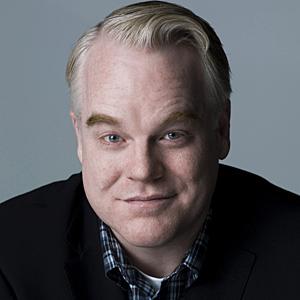
It seems too often in life that great artists leave the world too soon. James Dean, Freddie Mercury, and Jack Kerouac are just a few names that spring to mind. Sadly I can now add the great actor Philip Seymour Hoffman to that list, as he was found dead on Sunday in his Manhattan apartment of an apparent drug overdose. He was forty-six years old.
When I walked into the living room Sunday morning and my wife Megan told me the news, it hit me like a kick to the solar plexus. The tragedy hit close to home, literally, because Hoffman grew up in my hometown of Rochester, New York. “How?” I thought, “How can a man barely in his mid forties be dead?” This wasn’t the way it was supposed to go. Audiences should be enjoying his performances for decades to come. It wasn’t fair. It wasn’t right.
In the immortal play Macbeth, Shakespeare wrote, “Out, out brief candle! Life’s but a walking shadow, a poor player that struts and frets his hour upon the stage and is heard no more.” While Hoffman’s life was brief, his career burned not like a candle, but like the Olympic torch. It was full of sound and fury but unlike the immortal Bard’s words, it signified everything. Hoffman’s career began small. His first major break was a role in the television show “Law and Order” twenty-three years ago. Within three years he would star (albeit in small roles) opposite acting legends Al Pacino and Paul Newman in the films Scent of a Woman and Nobody’s Fool.
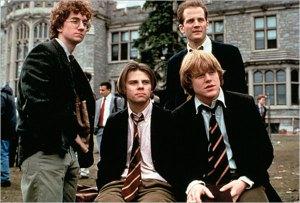
Twister and one of my personal favorites, Boogie Nights, would follow. By then there was no denying his talent. An everyman who somehow had an innate chameleon ability, Hoffman fully committed himself to every role. Whether it was his touching and tender performance as caretaker Phil Parma in Magnolia, or his gut wrenching and Tony nominated turn on Broadway as Willy Loman in “Death of a Salesman,” his passion and intensity were self-evident. When Hoffman stepped on the stage or screen you knew something magical was about to happen.
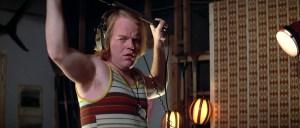
The culmination of that talent came in 2005 when Hoffman received the Best Actor Academy Award for his role in Capote. Though I’ve only seen the film once, it was a brilliant and near flawless performance. When portraying historical figures, especially ones that have had media exposure and the public knows well, there’s the tendency to imitate or parrot that person. Hoffman didn’t imitate Truman Capote, he immersed himself in the author. Adopting Capote’s reedy voice and somewhat foppish tendencies, Hoffman presented a nuanced performance. The scene towards the end of the film where he weeps at the executions of murderers Perry Smith and Richard Hickock just breaks the heart. The great ones are able to evoke true emotion in the audience. I’m not talking about the fake schmaltz that permeates Facebook and Twitter. I’m talking about deep emotion–the pain, and love, the hate, and the joy that lives deep within every human’s soul. Hoffman was that kind of actor.
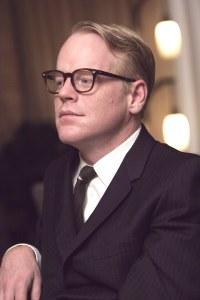
Philip Seymour Hoffman’s was nominated for an Oscar three more times–Charlie Wilson’s War, Doubt, and The Master–all in supporting roles. Of those three films, the role that will stick with me forever was Lancaster Dodd, the L. Ron Hubbard-like character from The Master. Hoffman’s Dodd was just so complex. He was a charlatan, a teacher, a manipulator, a prophet, a husband, and an author. Somehow, someway, Hoffman pulled off all those aspects of Dodd and made it into a single cohesive character. Sometimes a single well delivered line can make a whole movie. For me that happened early in The Master when Dodd says, “…but, above all, I am a man. A hopelessly inquisitive man, just like you.” It wasn’t just the profoundness of the words, it was Hoffman’s delivery that made that line special. It hit home. It was as if, in that particular moment in time, that sentence was spoken with me in mind. That, in and of itself, is all you need to know about Hoffman’s talent as an actor.
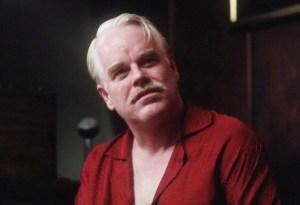
Aside from Philip Seymour Hoffman the actor, there was also Philip Seymour Hoffman the man. He was a dedicated and loving father to his son and two daughters, whom he had with his partner of fifteen years, costumer designer Mimi O’Donnell. My heart and my prayers go out to them in this tragic time. Hoffman also supported a number of charities including The Red Cross, Unite for Japan, and Feeding America. The actor also had a passion for NCAA Men’s Basketball, a fact which he credited his mother for in his Oscar acceptance speech. And like every man he had his demons, in this case drugs. Hoffman had struggled with drug abuse off and on since the age of twenty-two. In fact he told CBS in a 2006 interview that he abused, “anything I could get my hands on. I liked it all.” Tragically, Hoffman, like so many of his predecessors, succumbed to his addiction this past weekend. May you rest in peace Philip Seymour Hoffman. Today the world of film is a little bit hollower with your passing.
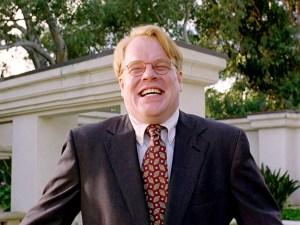
You can follow me on Twitter at Darth Gandalf @cocook1978, on my personal movie blog at http://www.whydithavetobesnakes.blogspot.com/, and on my Facebook page at https://www.facebook.com/#!/flicktasticmovies.

